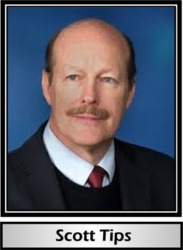One year ago, my article “The First Amendment Protects Vegan Creamery’s Right to Call Its Products ‘Butter’” appeared inWholeFoodsMagazine and celebrated the legal victory of Miyoko’s Creamery over the State of California. The State had tried to prevent Miyoko’s from exercising its free-speech right to use the word “butter” on its vegan butter packaging. But, Miyoko’s turned the tables on the government by suing the State in Federal Court, alleging, among other things, violation of Miyoko’s First Amendment rights to free speech. The company won that case; and now, another company, Tofurky, has won a similar free-speech court case.
The Tofurky Lawsuit
Tofurky is a leading, independent, plant-based protein food producer in America. Its lawsuit, which was filed on its behalf by the Animal Legal Defense Fund, the Good Food Institute (GFI), and the ACLU, challenged an Arkansas State law prohibiting anyone from using the words “burger,” “roast,” or “sausage” in connection with a non-animal-meat food product such as veggie burgers. With a fine of up to $1,000 for every plant-based and cultivated-meat food product marketed or packaged with a “meat” label, the law was especially oppressive. Moreover, any company found using label modifiers such as “vegan,” “veggie,” or “plant-based” would also be fined. This State law, in my humble legal opinion, violates Tofurky’s commercial free-speech rights.Tofurky obviously agrees with me, because the company filed its lawsuit in the U.S. District Court for the Eastern District of Arkansas in the Summer of 2019, contending that by censoring Tofurky’s truthful and non-misleading claims on its food labels the Arkansas law violated the company’s First Amendment rights. Moreover, Tofurky’s lawsuit asserted that its Fourteenth Amendment rights to due process were violated as well by the law favoring one industry over another, especially where the State law’s backers even admitted that its purpose was to protect established agricultural producers.
Tofurky also addressed the problem of “customer confusion” head-on by arguing that the law actually created confusion among consumers simply to protect Arkansan meat producers. With the State presenting zero evidence that the company’s labels misled consumers in any way, and with Tofurky’s food packaging all clearly stating that the products are plant based, meatless, vegetarian, or vegan, the State’s attorneys were hard-pressed to defend the statute. And, if anything, studies showed that removing the word “meat” from plant-based meat-product labels would actually cause customer confusion.
Armed with these legal arguments and facts, Tofurky and its litigation partners obtained a Federal court order that declared the Arkansas food-label censorship law unconstitutional and permanently blocked its enforcement against Tofurky for the company’s use of terms like “sausage” and “burger” together with wording like “vegan” or “plant-based.” The Court found that those provisions of the Arkansas law challenged by Tofurky unconstitutionally limited the company’s commercial free-speech rights. Another provision of the law was also declared unconstitutionally vague on its face and its enforcement thereafter prohibited statewide.
Specifically, the Judge’s order declared that Arkansas:
1) wrongly prohibited Tofurky from using words “to convey meaningful, helpful information to consumers about the products they are purchasing, and Tofurky’s repeated indications that the food products contained in these packages contain no animal-based meat dispel consumer confusion”;
2) “appears to believe that the simple use of the word ‘burger,’ ‘ham,’ or ‘sausage’ leaves the typical consumer confused, but such a position requires the assumption that a reasonable consumer will disregard all other words found on the label”;
3) “has not come forward with any evidence of broad marketplace confusion around plant-based meat alternatives to bolster its claim.”
In light of judicial history, these commercial free-speech victories are remarkable. Court rulings have not always favored Private businesses asserting their right to free speech.
Afforded Lesser Protection
For far too long, commercial free speech has not been afforded the same protection as non-commercial “political” free speech. Many decades ago, during the New Deal era, the United States Supreme Court decided in theValentine v. Chrestensen(316 U.S. 52 (1942)) case that commercial speech was not entitled to the same degree of protection under the First Amendment as political speech. The Court held that while the distribution of non-commercial handbills was entitled to First Amendment protection, the similar distribution of commercial handbills was not. The latter could be regulated by any two-bit government branch or agency with a thirst for control and power while the former could not.Bureaucrats dictated—and still dictate today—what businesses may say about their products or services, regardless of whether the statements are true or not. Commercial free speech, you see, is a lower form of life in the government’s eyes than political speech. And commercial speech isn’t just about businesses but also encompasses licensed professionals, such as pharmacists, doctors, veterinarians, nurses, and, yes, even lawyers.
For the next 34 years, or until the Supreme Court once again took up the issue in the 1976 caseVirginia State Board of Pharmacy, et al. v. Virginia Citizens Consumer Council, Inc., et al.,the American court system allowed regulatory agencies to run roughshod over businesses and their free-speech rights through advertising. In that case, Justice Harry Blackmun correctly commented, “The existence of commercial activity, in itself, is no justification for narrowing the protection of expression secured by the First Amendment.”
With theVirginia State Board of Pharmacycase, the Supreme Court struck down a State law banning prescription-drug advertising. “Advertising, however tasteless and excessive it sometimes may seem,” the Court stated, “is nonetheless dissemination of information as to who is producing and selling what product, for what reason, and at what price.” And as Martin H. Redish commented in his Cato white paperCommercial Speech and the Values of Free Expression(No. 813) many years later, “… a commitment to free expression both reflects and implements a belief in the ability of adult individuals to judge for themselves the wisdom or persuasiveness of competing viewpoints.”
Subsequent commercial free speech cases have only built upon the broadening protection afforded to that business vein of free expression. The courts, and the U.S. Supreme Court especially, are increasingly recognizing that businesses are entitled to express their truthful views as well under the same First Amendment umbrella as all other speech. Redish again clearly makes the case for abolition of any differential treatment when he argues, “People are either sheep, or they are not: if they cannot be trusted to make the ‘correct’ commercial purchasing decision on the basis of free and open debate, how can they logically be trusted to make political choices on the basis of such debate?”
On the Offensive
Other meat-labeling censorship laws—similar to the just-defeated Arkansas law—are on the books in Mississippi, Louisiana, South Dakota, and other States. Earlier this year, the U.S. District Court for the Middle District of Louisiana agreed with Tofurky’s free-speech challenge and enjoined any enforcement of such food-label censorship law in that State, ruling it unconstitutional. Encouraged by the victories in Louisiana and now, Arkansas, Tofurky and other plaintiffs are challenging many of these other censorship laws.Tofurky’s press release on its victory homed in on the real reason for these State laws when it stated,“The Louisianalaw’ssponsor, for instance, admitted that he designed the law to protect certain Louisiana agricultural producers from growing competition with plant-based and cultivated meat products. When discussing the perceived need for the Mississippi law, State representative Jeff Knight publicly admitted, ‘We’re just trying to protect our product’ Animal agriculture industry representatives have warned producers that competition from plant-based and cultivated meat products is one of the 'major challenges' the animal meat industry faces.”
Tofurky CEO and President Jaime Athos touched on that theme when he observed,“The court ruling in Arkansas affirms what we have been saying all along – consumers are buying plant-based products, like Tofurky, knowingly and intentionally, not because they are confused. Consumers choose plant-based because of their values, nutritional or taste preferences and concerns about the impacts of animal agriculture on the environment. The passage of this law was never about helping consumers, it was a naked attempt by the state legislature to interfere in the marketplace and limit competition against animal agriculture interests. Thankfully, the court in Arkansas has seen through this ruse, just like a recent Louisiana court judgment, on a comparable law. We look forward to future court victories in other states, and while that is gratifying on some level it is also frustrating. We would much rather legislatures spend time working to benefit constituents, so that we could spend more time making good food for our customers.”
The Future of Commercial Free Speech
Increasingly, the U.S. Supreme Court has signaled its acceptance of the equivalency between protected political free speech and commercial free speech. FromBigelow v. Virginia,421 U.S. 809 (1975), toSorrell v. IMS Health,564 U.S. 552 (2011), the Court has been retracing its steps back to a type of “Unified Field Theory” of free speech rights where both commercial and non-commercial speech are treated equally and merged into one protected concept. Supreme Court Justice Clarence Thomas is especially vocal on this subject.Unless the U.S. Supreme Court reverses course, the day will arrive when further litigation (and not legislation) may very well result in a true freedom for dietary-supplement and other such businesses to be able to freely make the truthful and non-misleading claims that they should always have been able to make, without the heavy and deadening hand of the FDA and other agencies to stifle them. Ultimately, the right to free speech is every bit as much about the people’s right to hear and know as it is about someone’s right to speak and be heard. Tofurky’s recent court victory is everyone’s victory, even the meat industry’s. They just don’t know it yet.WF










